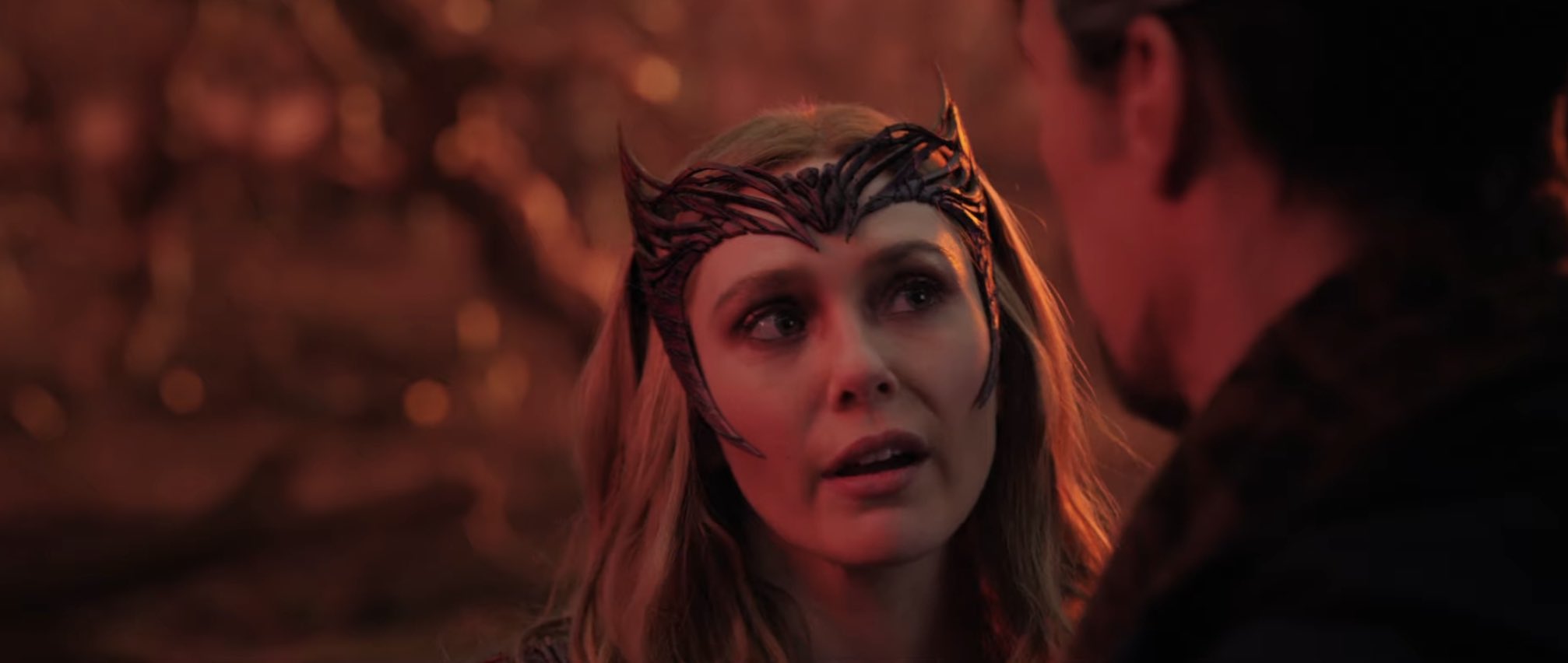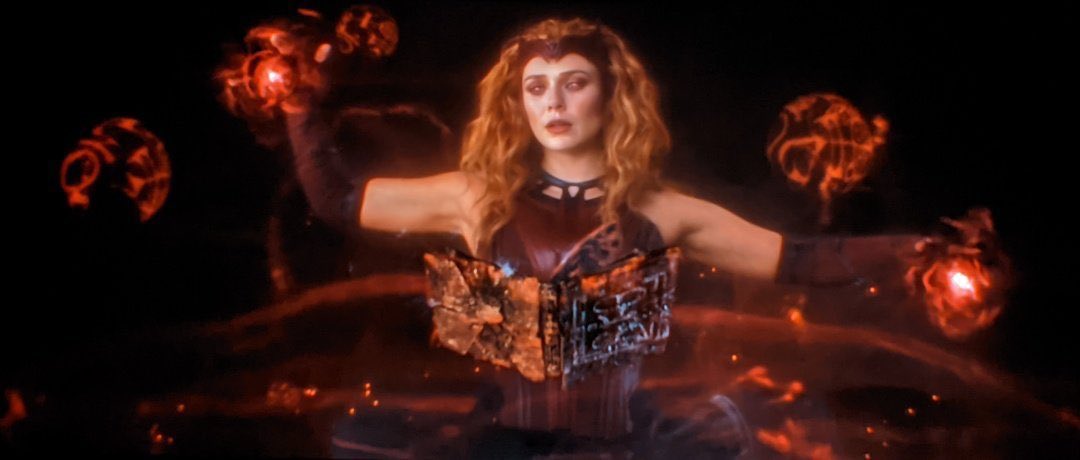The Difference Between an Anti-Hero and a Villain, Through Wanda Maximoff

My biggest complaint out of Doctor Strange in the Multiverse of Madness isn’t necessarily anything that Wanda went through in the movie, but the looming feeling that I had about how people would react to her story. I know, “Like what you like and don’t let anyone get you down,” but it’s been hard because I’ve searched for a guiding light in my own exploration of grief through Wanda, and while I understood her storyline and liked a lot of it (for the most part), there were things I didn’t particularly love.
But one thing that’s been happening thus far is the use of the word “villain” to describe her, and that’s not true. She’s not a villain. Talking with Rolling Stone, screenwriter Michael Waldron was asked the following question: “What was your thinking behind having Wanda Maximoff become a full-on villain in this movie, especially since it’s a bit of a change in course from WandaVision?”
“Well, first off, it’s true to who the comics’ version of the character is and what she does in the comics. It was always where Wanda was headed in the MCU, even as I inherited the movie,” Waldron said. “The question just became, when would it happen? Certainly, there was a version of this movie where Wanda was part of the ensemble that ended, I guess, with her turning bad, and then she could have been an antagonist of another movie. But I feel like in that case, you would have had a watered-down version of Wanda going bad because it’s still Dr. Strange’s movie. She wouldn’t be the protagonist, and she wouldn’t really be the antagonist. You’d have to have a [different] antagonist throughout the entirety of most of the film.”
He’s right, to an extent. Wanda, in the comics, does go back and forth between being a hero and being their opposition. We’ve seen it in the famed House of M storyline, and we see it constantly throughout her history. Maybe it comes with the territory of being Magneto’s daughter, but she does operate in the gray area between full Avenger and their enemy.
“You know, she’s doing bad stuff throughout WandaVision. She does make the heroic choice to let go of all those people. But it’s also revealed to her that the family she’s built is not real,” Waldron went on. “Then she gets the Darkhold at the end of the series and learns that there is a real version of her children out there. And if you’ve got the Book of the Damned whispering in your ear long enough that your kids are out there and you could go get ’em, maybe that can push you to do some terrible things.”

Now, to be fair to Waldron, the “villain” usage came from journalist Brian Hiatt, who asked him the question, and Waldron calls her the antagonist, which is more along the lines of the right way of describing her. But this movie does get into my long struggling debate as a Wanda fan: Is she an outright villain or not?
The answer is no. She’s an anti-hero and a great example of one!
An anti-hero vs. a villain
As I said, Waldron never called her a villain. He called her an antagonist, which she is in this movie. But she’s a textbook anti-hero when you break her down, much in the same way that Loki is. An anti-hero is described as “a central character who lacks the characteristics an audience associates with a conventional hero,” and that’s pretty much Wanda Maximoff in a nutshell. Compare that to a “villain,” who is often deliberate In their actions, and that doesn’t exactly explain the Scarlet Witch.
Her actions are bad, and she has an evil side, but that doesn’t make her a villain. She’s the same kind of anti-hero we love in characters like Frank Castle, who is very far from a hero but is still trying to do the right thing, and while most of Doctor Strange in the Multiverse of Madness has Wanda doing the wrong thing, the important thing (as Stephen Strange even said) is that she’ll always set it right.
That right there is what makes her an anti-hero—that even when she does the wrong thing and is lost in her own power, she’s still someone who will find a way to fix it and make it right. At the end of WandaVision, she freed Westview and knew that they wouldn’t forgive her. She didn’t expect them to. She knew what she did was wrong and this town would take a lot of time to heal, and she wasn’t going to be any help to them.
She ended up being possessed by the Darkhold in return, but at the end of the day, I still consider her someone who will do the right thing in the end, even if she loses herself along the way. A villain would have instantly gone and killed America Chavez. Wanda doesn’t. She sends demons after her and willingly fights Strange, and you can see in her lack of success in that regard that she doesn’t really have the desire to kill America; it’s just what she thinks she has to do.
So that, to me, shows how she’s not really a villain. She’s in the wrong, and she’s not doing what she should to be a hero, but she still as her heroic moments.
(featured image: Marvel Entertainment)
Have a tip we should know? [email protected]
